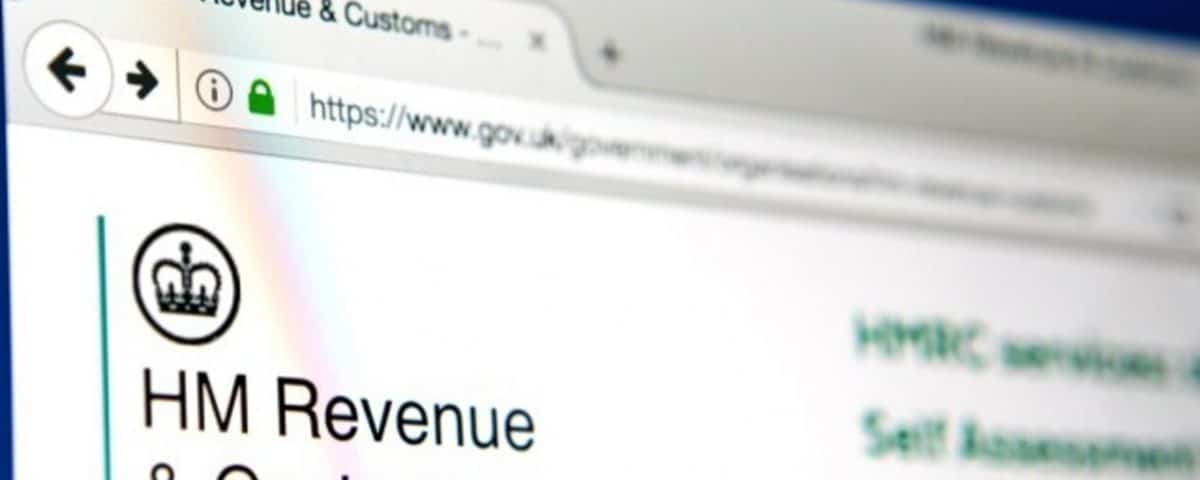HMRC is very aware of phishing scams. It is always good to be careful of any links, emails, text messages or phone call you receive claiming to be HMRC. If you are unsure whether the message(s) from HMRC are real, you can contact us on 0121 603 3333*
We have provided examples of scams that you may receive from HMRC below. To help HMRC in their investigations, report all HMRC related phishing emails and bogus text messages to them. Even if you get the same or similar phishing email or text message often, email it to and then delete it.
Do not open attachments or click any links in an email or text message, as they may contain malicious software or direct you to a bogus website.
We have provided examples of scams that you may receive from HMRC below. To help HMRC in their investigations, report all HMRC related phishing emails and bogus text messages to them. Even if you get the same or similar phishing email or text message often, email it to and then delete it.
Do not open attachments or click any links in an email or text message, as they may contain malicious software or direct you to a bogus website.
Coronavirus (COVID-19) scams
1Email scams
HMRC is aware of a phishing campaign telling customers they can claim a tax refund to help protect themselves from the coronavirus outbreak.
Do not reply to the email and do not open any links in the message.
The email has been issued in various formats. An example of this scam is below:

Do not reply to the email and do not open any links in the message.
The email has been issued in various formats. An example of this scam is below:

2SMS scams
‘Goodwill payment’ SMS
HMRC is aware of coronavirus SMS scams telling customers they can claim a ‘goodwill payment’. Do not reply to the SMS and do not open any links in the message.This is an example of the scam wording:
‘As Part of the NHS promise to battle the COV- 19virus, HMRC has issued a payment of £258 as a goodwill payment. Follow link to apply.’.
‘£250 fine’ SMS
HMRC is aware of a SMS scam which states you will be fined £250 for leaving the house more than once. The message asks recipients to call an 0800 telephone number to appeal.Do not reply to the SMS or call the phone number listed. An example of the scam is shown below:
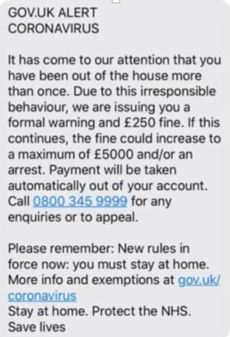
Tax refund and rebate scams
1Email addresses
HMRC will never send notifications by email about tax rebates or refunds.
Do not:visit the website
open any attachments
disclose any personal or payment information
Fraudsters may spoof a genuine email address or change the ‘display name’ to make it appear genuine. If you are unsure, forward it to us and then delete it.
Do not:
Fraudsters may spoof a genuine email address or change the ‘display name’ to make it appear genuine. If you are unsure, forward it to us and then delete it.
2Example of a phishing email and bogus website
An example of a HMRC related phishing email scam is below:
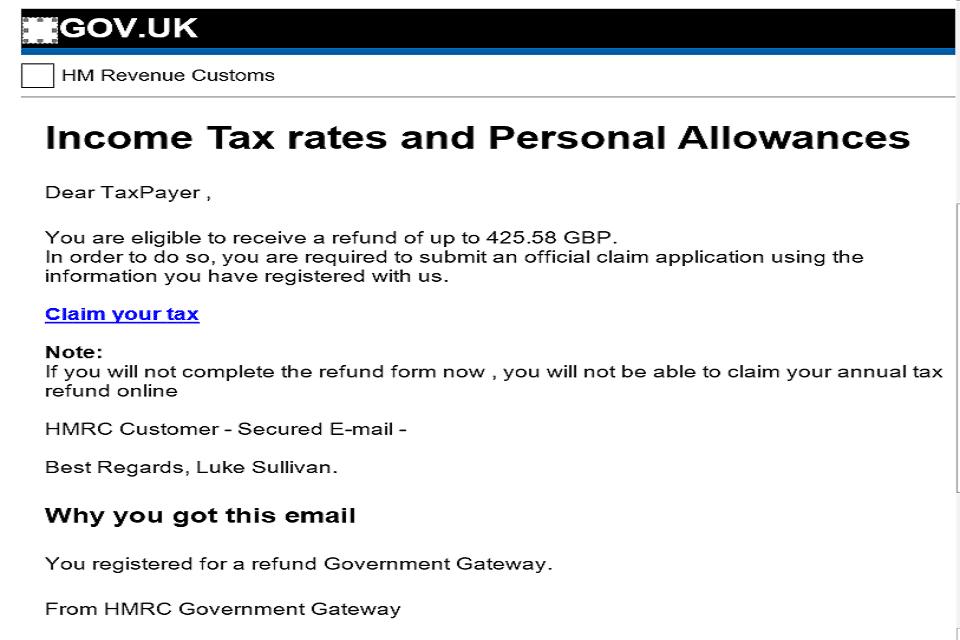
An example of a phishing website designed to trick you into disclosing personal information is below:
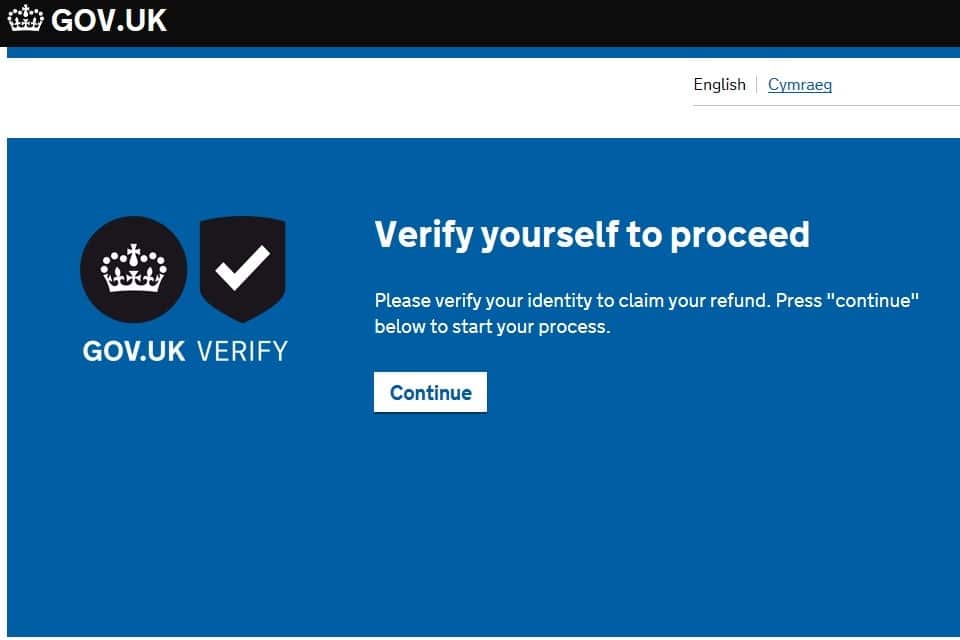
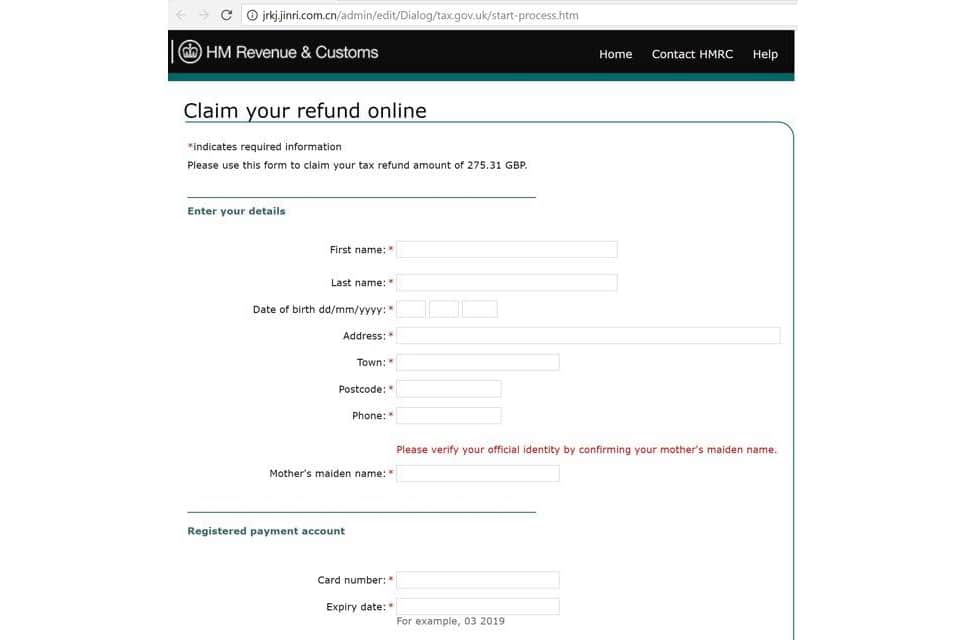

An example of a phishing website designed to trick you into disclosing personal information is below:


3Text messages
HMRC will never ask for personal or financial information when we send text messages.
Do not reply if you get a text message claiming to be from HMRC offering you a tax refund in exchange for personal or financial details. Do not open any links in the message.
Send any phishing text messages to 60599 (network charges apply) or email then delete it.
An example of a phishing text message is below:

Do not reply if you get a text message claiming to be from HMRC offering you a tax refund in exchange for personal or financial details. Do not open any links in the message.
Send any phishing text messages to 60599 (network charges apply) or email then delete it.
An example of a phishing text message is below:

4Bogus phone calls
HMRC is aware of an automated phone call scam which will tell you HMRC is filing a lawsuit against you, and to press one to speak to a caseworker to make a payment. We can confirm this is a scam and you should end the call immediately.
This scam has been widely reported and often targets elderly and vulnerable people.
Other scam calls may offer a tax refund and request you to provide your bank or credit card information. If you cannot verify the identity of the caller, we recommend that you do not speak to them.
If you’ve been a victim of the scam and suffered financial loss, report it to Action Fraud.
The calls use a variety of phone numbers. To help HMRC in their investigations you should report full details of the scam by email to: , including the:
date of the call
phone number used
content of the call
This scam has been widely reported and often targets elderly and vulnerable people.
Other scam calls may offer a tax refund and request you to provide your bank or credit card information. If you cannot verify the identity of the caller, we recommend that you do not speak to them.
If you’ve been a victim of the scam and suffered financial loss, report it to Action Fraud.
The calls use a variety of phone numbers. To help HMRC in their investigations you should report full details of the scam by email to: , including the:
5WhatsApp messages
HMRC will never use ‘WhatsApp’ to contact customers about a tax refund. If you receive any communication through ‘WhatsApp’ saying it’s from HMRC, it is a scam. Email details of the message to then delete it.
6Social media scams
HMRC is aware of direct messages sent to customers through social media.
A recent scam was identified on Twitter offering a tax refund.
These messages are not from genuine HMRC social media accounts and are a scam. We never use social media to:
offer a tax rebate
request personal or financial information
If you cannot verify the identify of the social media account, send the details by email to: and ignore it.
A recent scam was identified on Twitter offering a tax refund.
These messages are not from genuine HMRC social media accounts and are a scam. We never use social media to:
If you cannot verify the identify of the social media account, send the details by email to: and ignore it.
7Refund companies
HMRC is aware of companies that send emails or texts advertising their services. They offer to apply to HMRC for a tax rebate on your behalf, usually for a fee. These companies are not connected with HMRC in any way.
You should read the ‘small print’ and disclaimers before using their services.
You should read the ‘small print’ and disclaimers before using their services.



